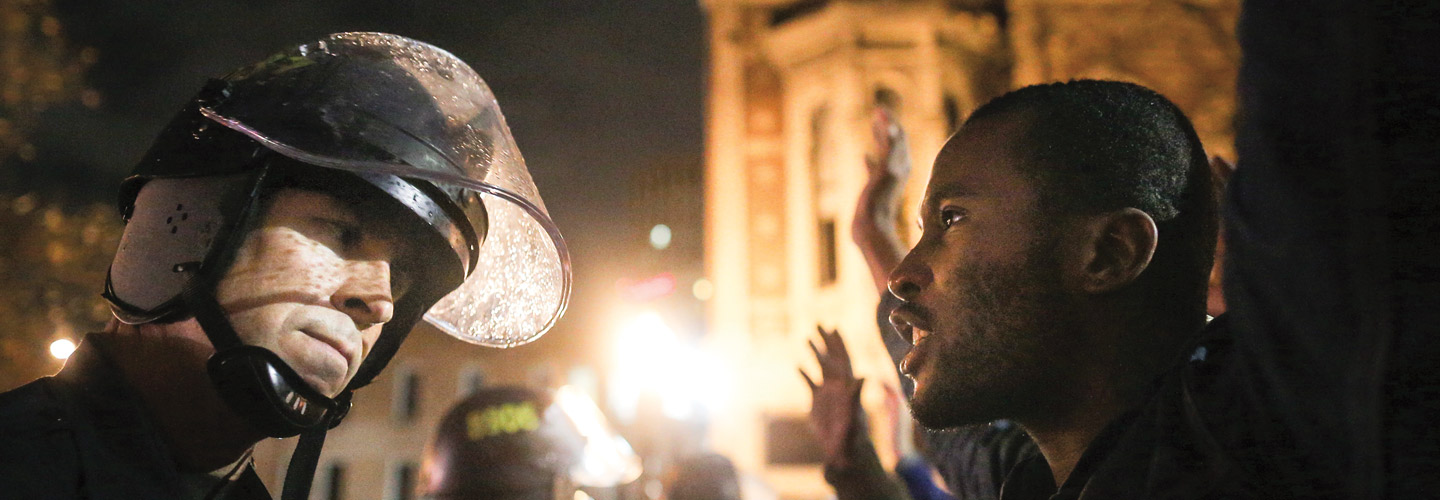Shanel Berry has raised her two sons, Dallas, 15, and Amari, 11, to be confident and upstanding. She tells them to square their shoulders, look people in the eye, and defend what is right. But her advice comes with an exception: Do none of those things if stopped by the police.
In that case, she wants her sons to be cautious and just obey any orders the police may give them—even if they feel they were stopped for no reason.
“That is the part Dallas doesn’t quite get,” says Berry, a teacher in Waterloo, Iowa. “[He asks,] ‘Why are you telling me to comply if I am not doing anything wrong?’ I am trying to teach them to be men and stand up for themselves, but at the same time I am telling them to back down and not be who they are.”
Around the country, Black parents like Berry report having the same difficult discussion. They coach their kids never to talk back to the police or make sudden movements around them, and to make sure officers can always see their hands. Parents have this talk because they believe some police officers view Black people with suspicion and treat them less fairly than white people. They fear their children may be hurt, or even killed, during an encounter with the police.
Recent police killings of African Americans have sparked outrage, protests, and deadly attacks on officers. What can be done to bridge the divide between police and the communities they serve?
Shanel Berry has two sons. Dallas is 15 years old. Amari is 11. She has raised them to be confident and upstanding. She tells them to square their shoulders, look people in the eye, and defend what is right. But her advice comes with an exception. She warns her sons to never do those things if stopped by the police.
In that case, she wants her sons to be cautious. She tells them to obey any orders the police may give them. Even if they feel they were stopped for no reason, they should obey all orders.
“That is the part Dallas doesn’t quite get,” says Berry. She is a teacher in Waterloo, Iowa. “[He asks,] ‘Why are you telling me to comply if I am not doing anything wrong?’ I am trying to teach them to be men and stand up for themselves, but at the same time I am telling them to back down and not be who they are.”
Around the country, other Black parents struggle like Berry. They report having the same difficult discussion. They coach their kids never to talk back to the police or make sudden movements around them. They tell their children to make sure officers can always see their hands. Parents have this talk because they believe some police officers view Black people with suspicion and treat them less fairly than white people. Parents fear their children may be hurt, or even killed, during an encounter with the police.

